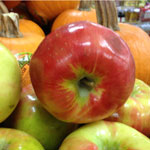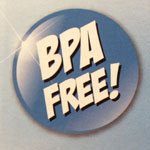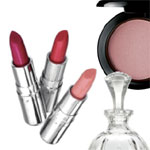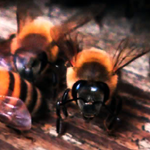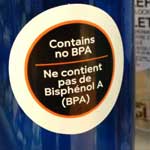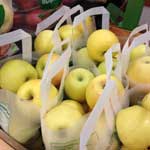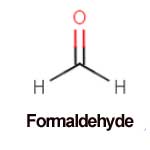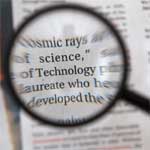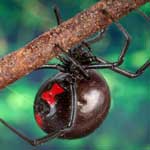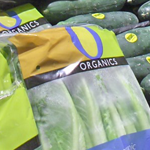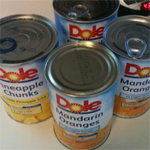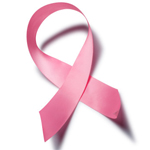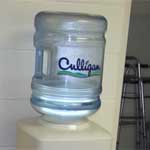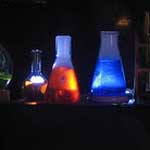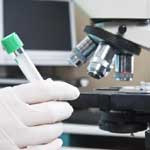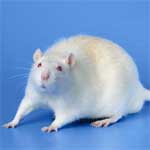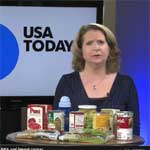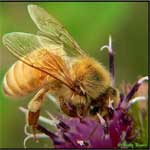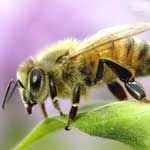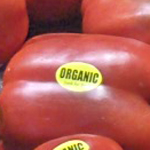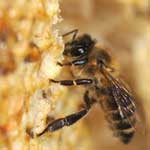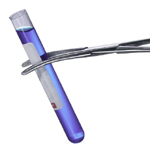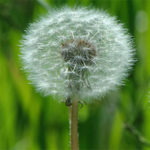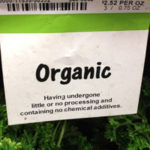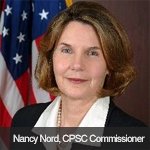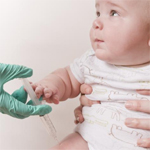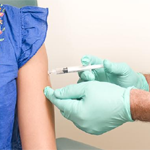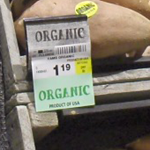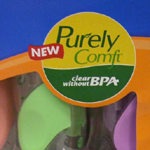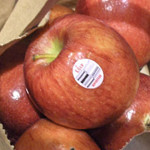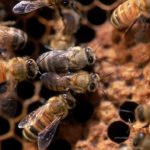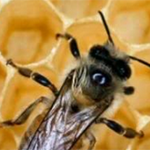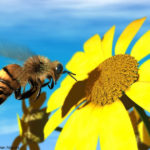'Organic' Doesn't Mean Pesticides Weren't Used," By Barbara Quinn. Brian Leahy has an interesting history. In 1980, he operated a 900-acre organic rice farm in California. In the 1990's, he managed an 800-acre organic corn, soybean, alfalfa and cattle farm in Nebraska. In 2002, he became executive director of the California Certified Organic Farmers (CCOF). Then in 2012, Leahy became the director of the California Department of Pesticide Regulations. Does that seem a bit strange? Read more. … [Read more...]
BPA in Blood Not Detectible
"Study Confirms Human BPA Levels Very Low, Non-Detectable: Contaminated Procedures May Have Accounted for Higher BPA Levels Found in Earlier Studies," by Biomonitoring Info. Researchers in Sweden report that BPA (bisphenol A) levels in blood are so low as to be undetectable and higher detected levels of the substance found in previous studies may be attributed to contamination. The findings raise the possibility that concern about the widely publicized chemical found in packaging for many food … [Read more...]
Parabens in Cosmetics
"Do Consumers Think About Parabens in Cosmetics?" by Perry Romanowski. If you spend a lot of time on the Internet surfing RSS feeds and social media, you could develop the notion that parabens are dangerous chemicals in cosmetics and that you should avoid products that contain them. Of course, actual science tells a different story and a review of all the scientific evidence by the independent scientists of the EU’s Scientific Committee on Consumer Safety (SCCS) indicates that parabens in … [Read more...]
Honeybees and Pesticide Ban Reversal?
"Bee Deaths Reversal: As Evidence Points Away From Neonics As Driver, Pressure Builds To Rethink Ban," by Jon Entine. If the Environmental Protection Agency moves to restrict neonicotinoid pesticides because of fears that they are causing bee deaths, it will happen in spite of the mounting evidence rather than because of it. Last December, the European Commission banned the use of neonicotinoids, often called neonics, for two years. The moratorium, support for which was channeled by the … [Read more...]
BPA Science
"EU BPA Evaluation must avoid 'Hysteria' and Focus on Scientific Evidence," By Rüdiger Baunemann. Regulatory authorities worldwide have found no health concern of BPA-based applications, therefore there is no scientifically justified reason for further restricting its use, argues Rüdiger Baunemann. Plastics have become indispensable to modern life, and a number of important materials are based on Bisphenol A (BPA). Without plastics we would not be able to enjoy high-tech devices like … [Read more...]
Expert Says: Pesticide Residue “Not Really a Concern”
"Pesticides Get Gad Rap, Expert Says," By Carol Ryan Dumas. Pesticides are an essential tool in production agriculture yet often get a bad rap, particularly when it comes to pesticide residues in food, an expert says. In reality, pesticide use is heavily regulated and allowable residue levels are so low that the issue of safety is insignificant. ...The dangers of pesticides are exaggerated by the media and special-interest groups, an expert says, but the truth is they are an essential tool in … [Read more...]
Chemical Spill & Formaldehyde Nonsense
"The West Virginia Formaldehyde Claim Is Nonsense," by Derek Lowe. This morning I heard reports of formaldehyde being found in Charleston, West Virginia water samples as a result of the recent chemical spill there. My first thought, as a chemist, was "You know, that doesn't make any sense". A closer look confirmed that view, and led me to even more dubious things about this news story. Read on - there's some chemistry for a few paragraphs, and then near the end we get to the eyebrow-raising … [Read more...]
Rats! “Relevant” Chemical Exposures Are Not Relevant
"Close Enough For NIEHS Work," By Steve Hentges. The subject of endocrine disruption is not particularly new, with extensive scientific and regulatory attention to endocrine disrupting chemicals (EDCs) over the last 20 years or so. ... Quite a few natural and synthetic chemicals exhibit endocrine activity but, in spite of 20 years of research, the field of endocrine disruption continues to be ill-defined and highly controversial. Two of the current controversies revolve around the related … [Read more...]
Cosmetics and Cancer Claims
“Safe” Chemicals Used In Makeup and Skincare Doubles Cancer Risk by Katherine Corkill. Well I had hoped to not be broaching this subject yet again. However there was an article that I took exception to this month that was written by a gal in the UK for the Epoch Times. My particular concern is through her attempted proclamations of fact there was not a single link to support her objective. I have read countless arguments, misconstrued facts, skewed data only to see yet again another article … [Read more...]
BPA Exposure: Low and Harmless
"BPA Exposure Is 'Too Low to Cause Harm,' According To Regulators; But You'd Never Know That From The Media Coverage," by Henry Miller. Suppose a new authoritative analysis revised the estimate of your lifetime chances of being struck by a meteorite — from, say, one in a hundred billion to one in ten billion. Should that tenfold increase in the probability make you any more worried? No– because both values are somewhere between negligible and infinitesimal. A similar and more pertinent question … [Read more...]
Conventional Produce Healthy for Kids
"Organic Shmorganic: Conventional Fruits and Vegetables are Perfectly Healthy for Kids," By Melinda Wenner Moyer. When my son was a baby, organic was a synonym for edible. If the apples I found at the grocery store weren’t certified, I wasn’t buying them. I knew that conventional produce could harbor traces of pesticides, and I’d read that pesticides could affect brain development. Sure, the details of this association were hazy—I didn’t know how many pesticides my son might ingest from … [Read more...]
EU’s Nonsensical Precautionary Regulations
"The Junk Science Threat to Free Trade," By Julie Girling. French red lines on agriculture and America's desire to have financial regulation be treated outside the current trade negotiations dominate the headlines about the proposed trans-Atlantic free-trade zone. But the biggest threat to the Trans-Atlantic Trade and Investment Partnership may well be the EU's expanding embrace of "precautionary" regulation—often in contradiction to established norms of science and risk management. ... … [Read more...]
Weak Science Garners Headlines
"Scare Journalism And Miracle Cures: American Media Prefer Weak Observational Studies," By Hank Campbell. A new analysis has affirmed what many in the science audience already knew; mainstream media prefer weak observational studies. It's why you're reading this article here instead of the New York Times. And that is not just in regards to social psychology correlations made using surveys of college students or sociology mysticism, it happens in medical coverage too. The examination found that … [Read more...]
Science Under Attack
"The Latest Epidemic To Infect The Scientific Community? Bad Science," by Patrick Michaels. Last month, 2013 Nobel-prize recipient Randy Schekman made quite a few waves in the science world, when he announced, the day before receiving his award, that he would no longer send papers to Science, Nature, and Cell. These are probably the three most prestigious journals in the world. His accusation is that they are “damaging science” by selectively publishing trendy “headline science” (my words) at … [Read more...]
Why Pesticides Should be a Favorite Thing
"Why Anti-Pesticide Campaigns do Unintended Harm," by Angela Logomasini. Black spots on roses and flea bites on kittens; blight fallen petals and overwrought Britons. These are just a few unfavorable things associated with “green” attacks on pesticides. While pesticides have risks that must be managed, they also provide important benefits to farmers, gardeners and consumers. These benefits are being lost in a politically correct sea of regulations and blind support for everything “organic.” … [Read more...]
Organic Food Not Better for the Environment
"If You Care About The Environment, Here Are Two Reasons To Support Big Ag," by Hank Campbell. There's no greater feel-good fallacy than the belief that organic food is somehow superior to conventionally farmed food. In reality, organic food isn't more environmentally responsible, it is worse, it isn't better for your health, it is worse and, for the most part, it isn't even grown by small farmers, it is giant conglomerates who, like with gluten-free, fat-free or any other food fad, encourage … [Read more...]
Evidence of BPA Safety
"Evidence Released Supporting BPA Safety," by Kari Embree. NAMPAThe North American Metal Packaging Alliance, Inc. (NAMPA) reminds consumers of the important scientific evidence released in 2013 that supports the safety of Bisphenol A (BPA) in food contact applications. Data from key studies, including large-scale regulatory studies by the National Institute of Environmental Health Sciences (NIEHS) in collaboration with the U.S. Food and Drug Administration (FDA) and the U.S. Environmental … [Read more...]
Scientists Say Chemical Policy Guided by Junk Science
"Politics, Environmentalism Beating Out Science In Regulating Risk Say Experts," by Trevor Butterworth. A survey of three professional societies, each focused on risk assessment, reveals that science is being pushed aside by politics and environmental advocacy when it comes to protecting the public from the risks of chemicals. When asked to weigh the most important factor that should go into managing risk, the scientists overwhelmingly said science (98 percent). But when asked to weigh the … [Read more...]
Farmers Detail Farming Practices and Safe Use of Pesticides
"Farmer Videos Show Food Safety Commitment," by SafeFruitsand Veggies.com The AFF has recently reposted on our Facebook page the videos of farmers describing how they control pests and diseases on their organic and conventional fruit and vegetable farms. These videos clearly show the scientific and technical knowledge that goes into making each and every pest and disease control decision. The reposting of the videos is in response to increasing consumer questions and comments about how and why … [Read more...]
Fight Cancer by Attacking Known Causes
"Six Solid Ways To Reduce Your Cancer Risk -- And That Of Your Children," by Geoffrey Kabat. We hear so much these days about cancer threats from exposure to trace amounts of pesticides and industrial chemicals in our food, water, cosmetics, sleepwear, and in playgrounds. This constant drumbeat of what invariably turn out to be miniscule or non-existent threats confuses many people, and diverts attention from what are the major known, avoidable causes of cancer and what we can do to reduce our … [Read more...]
Junk Science Alert: Headaches & BPA Water Jugs
"A Debate that Causes Headaches: Rushed Conclusions from Recent Study on BPA," by BPA Coalition. A new study from the University of Kansas was published claiming that drinking water from plastic bottles and water coolers containing BPA could cause migraines. It has since been picked up by media such as the British Daily Mail which reported that the study imitated human exposure to BPA in a laboratory where rats were administered BPA once every three days. The results of the study allegedly … [Read more...]
Toxin’s, Turkey-Day, and Chemophobia
"Thanksgiving Chemophobia - If Toxins Scare You, Stop Eating," By Hank Campbell. When I was younger, only Rachel Carson was ruining dinner and her evidence-by-anecdote heritage in Silent Spring still lingers with us today. To many in America, 'carcinogens' are a bad word, DDT will give you cancer 6 months after you spray it on crops and all chemicals are bad. And that is just among Grist readers. Once you broaden it out to the rest of progressives, you will find them paralyzed by "chemophobia" … [Read more...]
Black Widow Spiders Thrive with Reduced Pesticide Use
"Are There Spiders Lurking In Your Food?" by Lindsey Jahn. Occurrences of shoppers discovering spiders lurking in grocery-store grapes have been reported throughout the Midwest over the past month — and the issue isn’t limited to one retail chain. Budget supermarket chain Aldi pulled all grapes from its Milwaukee locations after a consumer found a black widow spider in a package of grapes from an Aldi store in Wauwatosa, Wis....The prevalence of black widows being found in grapes has increased … [Read more...]
Unscientific EU Pesticide Regulations
"Bad Science Could Kill Global Trade Talks," by John R. Block. Has irresponsibility gone intercontinental?...The European Commission has laid out a set of new rules that could effectively ban a quarter to a third of U.S. agricultural output and keep out U.S.-made products for controlling weeds, funguses and insects. The United States sets standards for pesticides essential to providing the world's food needs based on scientifically determined levels of safety, then applies a 100 to 1000 fold … [Read more...]
Dr. Oz Admits: Conventional Produce is Safe and Healthy
"Dr. Oz Agrees With Health Experts - Eat More Conventional and Organic Produce," by SafeFruitsandVeggies.com. Despite his segment last week about pesticide residues which was clearly designed to scare viewers and raise produce safety concerns, Dr. Oz’s own viewpoint regarding consumption of conventionally grown produce appears to agree with health experts everywhere who recommend consuming more of either conventionally or organically grown produce for improved health. Following the airing of … [Read more...]
Plastics, Pregnancy & Bad Journalism
"Can't Get Pregnant? Blame It On Plastics! Well, Not If Science Matters," Jon Entine. If you’re having trouble getting pregnant, plastics may be the culprit—at least that’s what a credulous reader might conclude based on recent news reports and a slew of website stories with headlines like: “New studies link BPA and phthalates to miscarriage and infertility.” But as is often the case when journalists report on complex science issues, the headlines do not align with the facts. A careful reading … [Read more...]
Cal EPA’s Junkscience on Breast Cancer Risk
"Over-Reaching California EPA Regulators Promoted A False Breast Cancer Link," by Geoffrey Kabat. In 2005 the California Environmental Protection Agency (Cal EPA) issued a voluminous report on the health effects of exposure to environmental tobacco smoke (ETS) which attracted attention for its rash claim that ETS was associated with increased risk of breast cancer. Thirteen years earlier the US EPA had published a report showing a weak link between ETS and developing lung cancer. But, of … [Read more...]
Misguided Safety Concerns About Pesticides on Food
"Study Shows Consumers Continue to Have Misguided Safety Concerns About Produce," by SafeFruitsandVeggies.com. A new study from Colorado State University (CSU) shows that consumers continue to have concerns about the safety of conventionally grown produce and the government regulatory processes in place to protect public health. Among other findings, the study showed that: “A distrust in regulatory oversight is a key trigger in the valuation for local and organic.” And, consumers generally … [Read more...]
Things to Know About the Environmental Working Group
"5 Things You Didn’t Know About the Environmental Working Group," By the Center for Consumer Freedom. The Environmental Working Group (EWG) does not represent mainstream scientific views on the health risks from chemicals. According to a survey conducted for the George Mason University Statistical Assessment Service by pollster Harris International, 79 percent of members of the Society of Toxicology — experts on health risks from chemicals — who expressed an opinion thought EWG overstated … [Read more...]
Corrupted Science
"Whatever Happened To Science?" by Michael D. Shaw. For the Baby Boomers, born under the halo of victory in World War II, and into the 1950s, one of the key themes was the promise of Science. Electrical power--courtesy of splitting the atom--would be so plentiful that consumers would simply pay a flat monthly fee, and the discovery of the structure of DNA meant (somehow, although this was never fully explained) that a cure for cancer was just beyond the horizon. The successful rollout of the … [Read more...]
Junk-Science Attacks on Consumer Products
"Junk Science Attacks On Important Products And Technologies Diminish Us All," By Dr. Henry Miller. As far back as 1995, renowned American astronomer and science popularizer Carl Sagan expressed concern about the trend in this country toward a society in which, “clutching our crystals and religiously consulting our horoscopes, our critical faculties in steep decline…we slide, almost without noticing, into superstition and darkness.” Almost two decades later, thanks in large part to the actions … [Read more...]
Rodent Tests Reveal Little About BPA Risk
"The Public Demonization Of Bisphenol-A: I Smell A Rat," by Patrick Michaels. I’ve been following the saga of Bisphenol-A, aka BPA, for over three years now, ever since I used it as a case study in my course “Public Science and Public Policy.” BPA is a current rage as a cause of all things evil: cancer, diabetes, obesity, heart disease and probably flatulence. BPA in tiny amounts is in a lot of things that we eat that come out of a can. It’s a popular liner that prevents corrosion and extends … [Read more...]
BPA & Miscarriages
"BPA Causes Miscarriages (Or So The Headlines Say)," by Steve Hentges. It was the late astronomer and author Carl Sagan who popularized the phrase “extraordinary claims require extraordinary evidence,” and originated the closely related concept of scientific skepticism. In the case discussed here, skeptics we should be. Last week we saw a flurry of media articles with headlines suggesting that exposure to the common chemical bisphenol A (BPA) increases the risk of miscarriage. Considering how … [Read more...]
Sense about BPA Science and Miscarriages
"Is BPA linked with increased risk of miscarriage?" by Sense About Science. On 14th October 2013 the Independent, Daily Telegraph and Daily Mail reported a study which linked the chemical bisphenol-A (BPA) with increased risk of miscarriage, and advised pregnant women to avoid tinned foods. Read more at Sense About Science. … [Read more...]
USA Today’s Alarmist Junk Science on BPA
"USA Today Spins Breast Cancer Scare Out Of Retracted Study Claim As New EPA Study Dismisses Risk," by Trevor Butterworth. USA Today reporter Liz Szabo has long rung the alarm bells on bisphenol A (BPA), devoting an entire full page article to promoting the repeatedly discredited claims of University of Missouri researcher Frederick vom Saal. Now, she has turned to vom Saal’s longtime collaborator, University of Tufts researcher Ana Soto to advance the claim BPA increased the risk of mammary … [Read more...]
California Green Chemistry Nightmare Launched
"Great For Lawyers; Terrible For California; A Nightmare For Manufacturers: Introducing 'Green Chemistry,'” by Hugh Hewitt. The road to manufacturing Hell is paved with…well Green Chemistry regulations. Lost amid the intense focus on the CR, the debt limit and various other stories of mayhem and strife, the Golden State officially entered its Green Chemistry era on Tuesday. Read the full post at HughHewitt.com. … [Read more...]
BPA Researchers Temper Cancer Claims in Rat Study
"Taxpayer-Funded Journal Walks Back BPA Cancer Claim After Statistical Meltdown," by Trevor Butterworth. First, bisphenol A – a chemical widely used in food packaging for safety reasons – caused breast cancer in rats at “human relevant” levels, according to a study published in the taxpayer funded scientific journal, Environmental Health Perspectives. Now, according to the same study, it doesn’t. After Forbes noted that the statistical data clearly showed BPA had no effects and did not cause … [Read more...]
Doctors Urged to Scare Expectant Moms About Chemicals
"Pregnant Women Encouraged to Worry about Everything," by Carrie L. Lukas. The American College of Obstetricians and Gynecologists and American Society for Reproductive Medicine are calling on doctors and the government to do more to warn pregnant women about the dangers of chemical exposure. I'd like to see the exact wording of their statement (which didn't appear to be available on either website). I'd hope that it is more tailored and nuanced than the headlines it is generating such as … [Read more...]
Pesticides Used to Help Save Honeybees
"Royal Pains: Why Queen Honeybees Are Living Shorter, Less Productive Lives," by By Francie Diep What's killing the bees? If you've been watching the news, you might answer: "Colony collapse disorder." Yet after the winter of 2011-2012, beekeepers only attributed 8 percent of their wintertime honeybee-hive losses to colony collapse disorder. ... In fact, some entomologists say colony collapse disorder is no longer a major problem. After a spike in incidents in 2006, when the condition was first … [Read more...]
Honeybee Politics and Science
"While Global Bee Colonies Struggle, European Politicians Seem Determined To Kill Them Off," by Jon Entine. Science and politics don’t mix well. In the United States, we’re witnessing rancorous policy debates over shale gas extraction (i.e. fracking) and GMOs in our foods. But in Europe, the hottest issue is the health of honeybees. And the ugly public discussion is lapping onto our shores. Bees pollinate 80 percent of our flowering crops, which constitute about one third of everything we eat. … [Read more...]
Note to Mom: Conventional Fruits and Veggies are Safe
"Instead of Scaring Moms, Join Us in Promoting Healthy Eating," by SafeFruitsandVeggies.com. Yesterday, First Lady Michelle Obama held a meeting with food companies, media, consumer groups and academics to discuss the impact of marketing unhealthy foods to kids. In addition to encouraging a decrease in advertising and marketing of “junk foods,” Mrs. Obama repeatedly urged members of the audience to encourage healthy eating among children. At one point, Mrs. Obama told her audience that “If … [Read more...]
Organic Agriculture Can’t Feed a Growing Population
"Organic Agriculture Cannot Feed The World," Center for Consumer Freedom. We’ve written before that, despite organic activists’ claims to the contrary, conventional agriculture (a.k.a. non-organic) is the only way to feed the world’s burgeoning population, and there’s nothing wrong with that. So it was with mild frustration yesterday when we read a blog post and heard a Morning Edition segment by NPR’s Dan Charles titled, “American Farmers Say They Feed The World, But Do They?” which glossed … [Read more...]
Breast Cancer Fund’s Latest BPA Hype
"Pass the Microphone to Science: The Truth Behind BPA and Breast Cancer," By the BPA Coalition. Earlier this week, the US-based Breast Cancer Fund (BCF) published a report on BPA exposure during pregnancy. The report is described as a “comprehensive review of the scientific literature” despite its selective use of only older studies that support BCF’s conclusion that BPA “disrupts fetal development and sets the stage for later-life diseases, including breast cancer”. The report also … [Read more...]
Scientist Says: PCBs ‘Not Particularly Toxic’
"Opinion: PCBs are Not ‘Toxic Time bombs,’" by Joe Schwarcz. We hadn’t heard much about polychlorinated biphenyls since the fire at St-Basil-le-Grand in 1988, but we sure are hearing a lot now. There are two angles to news about the illegally stored PCB-filled transformers and contaminated waste in Pointe-Claire. There is the legal and political story, and there is the scientific one. Without question, the PCB-containing materials were improperly and illegally stored and will have to be removed … [Read more...]
Beekeeper Perspective on Colony Collapse Disorder
"What’s Killing the Bees? Pesticides, But Not the Ones You Think," by Randy Oliver. I’m a professional beekeeper and independent research scientist. My sons and I run a 1000-colony beekeeping operation. I talk on a daily basis with beekeepers and researchers around the world. Bees are my life. I’m also a lifelong environmentalist and organic gardener, coming of age at the time Silent Spring was published. So when bee colonies — including my own — started to die at an increased rate in the … [Read more...]
Healthy Diet Free of Pesticide Alarmism
"Advocating and Educating About the Safety of All Fruits and Veggies," by SafeFruitsandVeggies.com. Twenty thousand cancer cases could be prevented if half of all Americans increased their consumption of fruits and veggies by a single serving, according to a paper published in Food and Chemical Toxicology. A peer reviewed Swedish study involving 71,000 people followed over a 13-year period showed that a higher consumption of fruits and veggies leads to a longer life. These are compelling … [Read more...]
Bisphenol A & Fertility
"What Do We Really Know About BPA And Fertility?" By Steve Hentges. Last week, a study published in the journal Human Reproduction reported that bisphenol-A (BPA), a compound widely used to make polycarbonate plastic and epoxy resins, altered maturation of human oocytes in vitro. Specifically, at high concentrations of BPA, oocyte maturation decreased while the incidence of oocyte degeneration increased. In an accompanying press release, the authors suggested that BPA “may cause a significant … [Read more...]
Dartmouth Chemist Takes on ‘Chemophobia’
"Are Worries about Chemical Danger Overblown?" By Deborah Kotz. Concerns about the dangers caused by the use of man-made chemicals in our environment has caused what Gordon Gribble, a professor of organic chemistry at Dartmouth, calls a “colossal mess,” causing some people to go to extreme lengths to avoid such chemicals. Some people take pains to avoid all things that they identify as dangerous chemicals to the point that it impairs their daily lives, a phenomenon known as “chemophobia.” It … [Read more...]
Lead Paint Risk Low Yet Lawsuits Continue
"Lead Paint: All Over but the Lawsuits," By James R. Copland. As if California and its municipalities were not already making life difficult for businesses and taxpayers, the Golden State's courts could pile on too. On July 15, a trial began in San Jose, in which seven California counties (Santa Clara, Alameda, Los Angeles, Monterey, San Mateo, Solano and Ventura) and three cities (Oakland, San Diego and San Francisco) are suing five companies that once manufactured paint containing lead. The … [Read more...]
Faulty Science Abounds
"There Are A Thousand Ways To Do An Experiment Wrong," by By Henry I. Miller and Jeff Stier. The 18th century philosopher and economist Adam Smith observed, “People of the same trade seldom meet together, even for merriment and diversion, but the conversation ends in a conspiracy against the public, or in some contrivance to raise prices.” That view is one justification for giving federal agencies so much money, control and discretion over commerce and other aspects of our lives. And when it … [Read more...]
Discredited Anti-Herbicide Researcher Loses Funding
"Berkeley Anti-Atrazine Crusader Blames 'Big Ag', Set To Sue, After University Dispute Over Dwindling Research Funds," by Jon Entine. Has ‘Big Ag’ finally nailed a long time nemesis? Or has an ideologically obsessed activist scientist with a long history of discredited studies finally fallen victim to his own bizarre behavior? Or has an ideologically obsessed activist scientist with a long history of discredited studies finally fallen victim to his own bizarre behavior? These are the … [Read more...]
Junk Science on Chemical Effects on Children
"How Abysmal Scientific Research Is Used To Scare America's Parents," by Geoffrey Kabat. We have become accustomed to a steady barrage of reports of hazards lurking in our environment that MAY pose a threat our health and that of our children. These include, among others, low-level radiation exposure from nuclear power plants and nuclear waste; possible water contamination from hydraulic fracturing; and exposure to a wide range of chemicals, including pesticides and industrial pollutants, in … [Read more...]
“Certified Naturally Grown” without Red Tape
"'Certified Naturally Grown' - No Synthetic Pesticides, No Big Organic Fees,"By >Hank Campbell. What happens if you adhere to every process restriction that a corporation that sells its food using the 'organic' label adheres to, but you don't pay the fees to get a government 'certification' and still try to claim you are 'organic' at a local Farmer's Market? About $20,000 in government fines, it seems. Read the full article at Science 2.0. … [Read more...]
CPSC Commissioner Nord: Problems Remain with Consumer Product Safety Improvement Act
"CPSIA’s Fifth Anniversary," by Nancy Nord. On August 14, 2008, Congress passed and the President signed the Consumer Product Safety Improvement Act (CPSIA). It contained new regulatory authorities and enforcement tools (many of which I suggested to Congress when I served as acting chairman) to make it easier for CPSC to find and recall unsafe products made around the world. Five years ago today, the agency began to follow through on my pledge to implement the law fully and fairly. … [Read more...]
Court Ruling on Autism and Vaccines Not About Science
"Court Rulings Don't Confirm Autism-Vaccine Link," by Emily Willingham. There’s a post making the rounds courtesy of something called “Whiteout Press” with the headline “Courts confirm vaccines cause autism.” It’s spreading across sites, through chains of elementary school parent communities, and onto radars of other communities that overlap. In other words, it’s viral. If only there were a vaccine for it. Read the full article on Forbes.com. … [Read more...]
No ‘Bee-pocalypse,
"Everyone Calm Down, There is No 'Bee-pocalypse,'" Shawn Regan. Honey BeeThe media is abuzz once again with stories about dying bees. According to a new report from the USDA, scientists have been unable to pinpoint the cause of colony collapse disorder (CCD), the mysterious affliction causing honey bees to disappear from their hives. Possible factors include parasites, viruses, and a form of pesticide known as neonicotinoids. Whatever the cause, the results of a recent beekeeper survey suggest … [Read more...]
The Data on BPA and Breast Cancer
"BPA And Breast Cancer: When Academics Spin Statistics," by Trevor Butterworth. A new study, funded by the National Institute of Environmental Health Sciences (NIEHS), and published in a journal the institute subsidizes – Environmental Health Perspectives (EHP) – raises an alarm. This is not, in itself, unusual; EHP is a repository of alarming claims about the environment; but what makes this study different – and alarming in its own terms – is not the claim that “human relevant” exposure to … [Read more...]
There’s No Such Thing as a Natural Remedy
"Don’t be Fooled by ‘Natural’ Buzzwords", by Christopher Labos. I learned a new word recently. A colleague introduced me to the term “chemophobia” — the fear of chemicals. He showed me an article in the New York Times Magazine about people’s preference for taking a “natural” remedy over standard medication. This feeling is understandable, and I’ve come across it many times, but I was surprised to see that it had actually been given a name and that people were writing in defense of it. What I … [Read more...]
Dangerous Results from Alarmism Regarding Vacines
"The Autism-Measles Panic, 15 Years Later," Emily Willingham. Several news outlets today are reviewing the measles outbreak in Wales, citing public health experts who lay the blame for the burst in cases squarely at the feet of Andrew Wakefield’s bogus MMR vaccine scare in 1998 and the subsequent media coverage. The Wall Street Journal has a particularly in-depth story [hits paywall if you click the link here, but clicking from Google News seems to give full access], “Fifteen Years After Autism … [Read more...]
No Link between Autism and Mercury in Seafood
"Mercury And Autism Not Linked, Again," by Emily Willingham. A “sentinel” population in the vastness of the Indian Ocean has long attracted scientific interest because of how much dietary methylmercury its members consume. The thing is, though, that as much as scientists have looked, they have yet to find any problems related to this intake. In the latest study with this ‘sentinel population’, researchers again have found no link, this time between autistic behaviors and maternal mercury … [Read more...]
Is Organic Food Really More Ethical?
"Organic Food – What is an ‘Organic’ Label Really Worth?" by Jon Entine." Consumers are willing to pay a premium for organic products, but the realities can mean you get little more than a psychological boost for your buck. Supermarkets in North America and Europe are overflowing with organic-labelled fruit, vegetables, eggs and meats. More than 80 countries have organic standards and products carry one or more of 200 seals, logos and certification claims. But are consumers able to make informed … [Read more...]
Unreasonable Precaution
"The Precautionary Principle is a Blunt Instrument, a 90s Throwback Out of Place in an Era of 'Smart Solutions' and Big Data," by Tracey Brown. A world of over seven billion people faces some pretty complex questions about the trade-offs involved in producing food, using resources, reducing disease and achieving the societies and environments in which we want to live. There's a collision between short-term and long-term outcomes, narrow interests and broader ones, and between problems and … [Read more...]
FDA Ban on BPA Based on Junk Science
"The BuzzFeed-ification of Science Reporting," by Lisa De Pasquale. For years I've been writing about how science reporting has devolved into hysteria and misinformation disguised as public service. TV reports lead with scare tactics like "Stay tuned for the killer in your kitchen cabinet!" with little regard to actual scientific evidence. It's gotten so ridiculous that even a TV provider makes fun of them in their commercial. Soon we'll be seeing reports on Sharknado preparation. Regarding the … [Read more...]
BPA Ban Not Related to Safety Concerns
"FDA Bans BPA in Already-BPA-Free Uses," by Gayle S. Putrich. The Food and Drug Administration will no longer permit the use of bisphenol A in packaging for baby formula. The controversial plastic feedstock was banned from baby bottles and cups last year. In issuing the new ban, however, FDA said it still considers BPA to be safe for packaging, but took its action because manufacturers have already abandoned its use in baby formula packaging. The plastics and chemical industry also said the … [Read more...]
Pesticide Ban Problems
"Problems With Pesticide Ban," by K. The province government needs to address some concerns about its proposed cosmetic pesticide ban, says the president of Keystone Agricultural Producers. Conservation Minister Gord Mackintosh announced last week that legislation will be introduced in fall that will ban synthetic weed control products beginning in December 2014, with a one-year grace period. The prohibition will apply to lawns, driveways, sidewalks and patios, as well as school grounds, … [Read more...]
Smart Response to Buzzfeed Article on “Dangerous” Food
"8 Foods The USA Bans But Other Nations Don't," by Emily Willingham. Perhaps you’ve seen the viral Buzzfeed article about the eight foods other countries banned that the US does not. Perhaps it occurred to you that just because something is used to slow down a fire doesn’t mean it or its components are always a bad thing (water, anyone?). But others have amply taken on the deep and depressing science literacy deficits of that particular article, so I thought I’d take a different tack today and … [Read more...]
Autism and Air Pollution Connected?
"Autism And Air Pollution Caveats, Again," by Emily Willingham. We’ve been here before, coupling autism and air pollution. Now, there’s a new study out, making the same claims of correlation between air pollution exposure during pregnancy and the risk of having a child with autism. When the previous studies appeared a mere few months ago, I wrote about five caveats that should give pause to taking the findings too seriously. These five things were ... Read the full article at Forbes.com. … [Read more...]
Food Chemophobia
"Eight Toxic Foods: A Little Chemical Education," by Derek Lowe. Many people who read this blog are chemists. Those who aren't often come from other branch of the sciences, and if they don't, it's safe to say that they're at least interested in science (or they probably don't hang around very long!) It's difficult, if you live and work in this sort of environment, to keep in mind what people are willing to believe about chemistry. But that's what we have the internet for. Many science-oriented … [Read more...]
Health Canada Declares BPA Safe–Again
"Canada: More Junk Science? The Anti-BPA Crusade Is Back," by Ronald L. Doering. The 25-year controversy involving BPA in food packaging won't go away. It continues to hang ominously like a black cloud over the food industry....Over the years Health Canada (HC) conducted periodic reviews of BPA to determine whether dietary exposure to it could pose a health risk to consumers. ... HC's Food Directorate has concluded again unequivocally that the current dietary exposure to B... HC has made a real … [Read more...]
Organic Food Safety In Question
"The Organic Hepatitis Outbreak: We Need Organic Field Testing," by Mischa Popoff. How safe are organic foods, especially when compared to conventionally grown varieties? Not as safe as many assume. A recall has just been announced for certified-organic berries sold at Costco. According to the Centers for Disease Control, at least 79 people in eight states have contracted hepatitis A, a debilitating disease that can last for weeks or months, and even be deadly, after eating Townsend Farms … [Read more...]
Pesticides & Human Health
"Pesticides Kill Pests, And Protect Lives," by Alan Caruba. A bit of personal history; in the 1980s I was engaged by the U.S. producer of a pesticide called Ficam to develop case histories about its use. Ficam is applied with water and it killed off a wide range of common insect pests. There is no odor and there is no hazard to humans when correctly applied, but at some point the Environmental Protection Agency told the producer it would have to go through the entire process of re-registering … [Read more...]
Pregnancy Study Unhelpful
"RCOG Report on Chemical Exposures During Rregnancy" by Sense about Science. “Pregnancy is a time when people spend a lot of time and money trying to work out which advice to follow, and which products to buy or avoid. The simple question parents want answered during pregnancy is: ‘Should we be worried?’ What we need is help in navigating these debates about chemicals and pregnancy. Disappointingly, the RCOG report has ducked this. Read the full commentary on Sense about Science. … [Read more...]
Alarmist Study on Pregnancy and Chemicals
"Pregnancy Safety Advice Prompts Criticism," by Michelle Roberts. The Royal College of Obstetricians and Gynaecologists has been criticised for saying pregnant women may want to "play it safe" and avoid chemicals found in many common household products. It says there is not enough information about the chemical risks to foetuses from cosmetics and food packaging. Items which it suggests should be avoided include tinned food, ready meals, shower gel and even new cars. Critics say the advice is … [Read more...]
EWG Is Wrong Again
How Wrong Is The Latest "Dirty Dozen" List? by Steve Savage. The Environmental Working Group (EWG) says that it "helps protect your family from pesticides." The purpose of this Applied Mythology post is to "help protect your family from dangerously misleading information from the EWG." Each year since 1991, the USDA has been publishing the results from a large-scale pesticide residue monitoring program called the PDP. Each year, a different set of crops is chosen and samples are purchased from … [Read more...]
Anti-Pesticide Activists and Honeybees
"Chemophobic Anti-Pesticide Groups Are At It Again," By Paul Driessen. Modern environmentalism rose to ascendancy on opposition to pesticides, specifically DDT. “If the environmentalists win on DDT,” Environmental Defense Fund scientist Charles Wurster told the Seattle Times in 1969, “they will achieve a level of authority they have never had before.” Using Rachel Carson’s often inaccurate book Silent Spring to drive a nasty campaign, they succeeded in getting the Environmental Protection … [Read more...]
Bees and Pesticide Regulation
"Will We ‘Bee’ Smart about Pesticide Regulation? by Henry Miller. On April 29, the European Commission failed for the second time to get the votes necessary to pass a proposed two-year ban on several innovative agricultural pesticides known as neonicotinoids (“neonics”). But immediately after reporting that a “qualified majority” of member states had not been reached, the Commission’s health and consumer affairs commissioner, Tonio Borg, announced that he would institute the ban … [Read more...]
Bee Colony Collapse & Anti-Pesticide Activists
"Collapse Of Bee Colonies Is Latest Target For Anti-Pesticide Groups," By Paul Driessen. Beekeeping is big business, and everyone loves honey and foods made possible by pollination. But "colony collapse disorder" threatens bees and crop pollination in many areas. CCD and other bee die-offs are nothing new. What we now call colony collapse was first reported in 1869, and many outbreaks since then have sent scientists scurrying for explanations and solutions. Fungi, varroa mites and other … [Read more...]
EWG Dirty Science
"Dirty Dozen List Loses its Punch," by Richard Cornett. This year’s release of the Dirty Dozen List produced by the Environmental Working Group (EWG) is beginning to shed its sizzle because of a full-court press by agricultural interests to focus on science-based information. Each year the EWG comes out with a list that ranks fruits and vegetables according to pesticide residue levels. For years the list has been a constant irritant to agriculture because it gives the impression that … [Read more...]
Green Chemistry Nightmare
"Coming To A Theater Near You: California’s “Green Chemistry” Nightmare," by Hugh Hewitt. I should be the last guy complaining. My law partner Liz McNulty and I will spend many a billable hour over the next decade or two advising companies on what to do with the avalanche of regulations about to descend on them courtesy of California’s Department of Toxic Substances. Their “green revolution” nightmare is about to begin, and the only folks who will benefit from it are employed by the … [Read more...]
Regulatory Inertia & Triclosan
"The EPA Opens a New Review of Handsoap, But Government Study Goes on for Decades," by Paul Alexander. In Washington, the Wheels of Government Grind Slowly -- When they Grind at All. One area of government habitually plagued by bureaucracy is the regulatory agencies, among them the Environmental Protection Agency and the Food and Drug Administration. Reviews of substances regulated by these agencies can take years, sometimes many years. Few reviews have lasted longer than the one afforded a … [Read more...]
Scare Mongering About Lipstick
"Environmental Scaremongers Strike Again," by Center for Consumer Freedom. In the past we’ve covered the so-called “Campaign for Safe Cosmetics,” (CSC) an environmentalist scare spinoff of the Environmental Working Group (perhaps better billed the “Environmental Worry Group”). EWG is so prone to overblowing fears of chemicals that 79 percent of members of the Society of Toxicology surveyed thought EWG overstated chemical risks, so it’s understandable that CSC, its corporate child, is hyping a … [Read more...]
Choosing Organic Food–or Not
"Choosy moms choose…" by Anastasia Bodnar. On Twitter the other day, I was told that “moms choose organic” for their kids. I’m a mom (almost) and I don’t choose organic. Personally, I dislike the implication that I am doing wrong by not buying organic and I think it causes harm to spread such an idea because it might discourage people from eating healthy foods that don’t have that label (or encourage people to eat junk food just because it’s labeled organic). Also, organic is a small percentage … [Read more...]
The Poltics of Bees and Neonicotinoid Insecticides
"The Politics of Bees Turns Science on its Head -- Europe Bans Neonics While Local Beekeepers, Scientists Say Action is Precipitous," by Jon Entine. In a move they say will protect bees, the European Commission announced on Monday that it would impose a two-year ban on neonicotinoid insecticides, although a sharp divide remains whether politics or science is driving this policy change. .... They have announced that the ban will likely become effective at the end of the year even though the … [Read more...]
Study of Roundup Herbicide: Junk Science
"Is Glyphosate Poisoning Everyone?" by Derek Lowe. I've had a few people send along this article, on the possible toxicological effects of the herbicide glyphosate, wondering what I make of it as a medicinal chemist. It's getting a lot of play in some venues, particularly the news-from-Mother-Nature outlets. After spending some time reading this paper over, and looking through the literature, I've come to a conclusion: it is, unfortunately, a load of crap. Read the full article on Corante. … [Read more...]
Phoney Science on Roundup Herbicide
"Condemning Monsanto With Bad Science Is Dumb," By Tamar Haspel. Did you see the latest indictment of Monsanto making the rounds? It's a "peer-reviewed" paper in the journal Entropy, co-authored by Anthony Samsel and Stephanie Seneff, blaming glyphosate, the compound in the herbicide Roundup, for virtually all the ills that can befall us. But here's the thing -- they made it up. Read the full article on Huffington Post. … [Read more...]
Confused Cancer Priorities
"Modish, Anti-Science Thinking Won't Advance Breast Cancer Prevention," Geoffrey Kabat. Two months ago an entity called the Inter-Agency Breast Cancer and Environmental Research Coordinating Committee, or IBCERCC, issued a 270-page report entitled “Breast Cancer and the Environment: Prioritizing Prevention.” Read the full article on Forbes.com. … [Read more...]
Honeybees and Neonicotinoid Pesticides
"Push to Ban Neonicotinoid Insecticides Takes on Political Overtones: Honeybee Research Questioned," by The National Cotton Council. As environmental activists coalesce around a ban on the neonicotinoid insecticides as the cause of Colony Collapse Disorder (CCD), a timely article recently published in Forbes magazine by Jon Entine, a senior fellow at George Mason U., calls for cooler heads to prevail on the issue. Entine points out that, over the past five years, some 30 percent of bees in the … [Read more...]
Activists Misrepresent FDA Data on Pesticides
"Alliance for Food and Farming: Read Actual USDA Pesticide Report, Not Re-Interpretation," by Alliance for Food and Farming. Last month the United States Department of Agriculture released its annual Pesticide Data Program Report. Among the USDA findings -- "U.S. food does not pose a safety concern based upon pesticide residues." In light of activist groups' annual release of their re-interpretation of the USDA PDP report findings, the Alliance for Food and Farming (AFF) urges the media and … [Read more...]
NRDC’s Junk Claims on “Endocrine-Disrupting” Chemicals
"National Resources Defense Council (NRDC) Champions Shoddy Journalism on Endocrine Active Chemicals," By Jon Entine. As Jon Entine of the Genetic Literacy Project reports, the NRDC is not exactly known for scientific nuance. So, there was little surprise when blogger Mae Wu took to the cyberwaves recently to plug an NBC Dateline story promoting the alleged dangers of “endocrine disrupting” chemicals.According to Wu, we should all be shocked—yes shocked—that an NBC producer and her family found … [Read more...]
Thoughtful Review of BPA Science
"Are Concerns About BPA Overblown?" By Chris Kresser. By now I’m sure most of you have heard claims that bisphenol A (BPA) is a harmful chemical that should be avoided as much as possible. Perhaps you even read that on this blog. Researchers, clinicians, environmental groups and the media have all sounded the alarm on BPA, pointing to a large body of animal evidence which suggests that it has estrogenic effects (i.e. increases estrogen activity) which in turn cause numerous health problems, … [Read more...]
History Lesson on BPA by Dr. Joe Schwarcz
"Let’s Preserve our Sanity when it Comes to Canned Food" by Joe Schwarcz. It may not be quite on a par with the Manhattan Project or with the challenge of beating the Soviets to the moon, but the race to find a substitute for the lacquer used to line food cans is heating up. The canning industry is frantically trying to find a replacement for the epoxy resin currently being used because of concerns that bisphenol A (BPA), a chemical that has been vilified as an “endocrine disruptor,” might be … [Read more...]
Some Facts about Organic Food
"Why You Shouldn't Buy Organic," by Jayson Lusk. Everywhere you turn, you hear "organic is healthier", "organic is greener", or "you absolutely MUST buy organic." It's not a question of whether we want to eat healthy, environmentally friendly food -- who doesn't want that? The question is whether organic lives up to the hype and whether it's worth it to pay a hefty premium. One of the problems with organic is that few shoppers know what the term really means, and they project onto the nebulous … [Read more...]
Insights on Bees and Colony Collapse Disorder
"Colony Collapse Disorder—it Sounds Catastrophic and Frightening," by Jon Entine. It’s estimated that over the past five years, some 30 percent of bees in the United States have either disappeared or failed to survive to pollinate blossoms in the spring. That’s about 50% more than the rate expected. The problem is direr in some other countries. In Spain, recent data indicate a loss close to 80% of beehives. On the other hand, in Canada and Australia, there is no sign of Colony Collapse … [Read more...]
Scientist describes Fear of BPA-Baby Bottles as “Completely Mad”
"BPA Bottles Harm Babies? Only If You Batter Them With One, Says Top British Scientist," By Trevor Butterworth. After stepping down as chief scientific advisor to the British government on April 1, Sir John Beddington Sir John Beddington exhaled a long list of real and nonsense risks that politicians should do more to fight for and against at a valedictory discussion held at the UK’s Science Media Centre. Of particular interest to readers of this column are his comments on the failure of … [Read more...]
Turning Point for BPA Science?
"Leading Environmental Group Scientist Praises FDA's Ground-Breaking Research On BPA: A Tipping Point In The Controversy?" by Trevor Butterworth. A trio of scientists from the Food and Drug Administration trooped up to the American Association for the Advancement of Science conference in Boston in February to talk about the work the agency has been doing in conjunction with the National Toxicology Program on bisphenol A (BPA), a chemical used in a huge range of applications from food safety … [Read more...]
Scientist takes on Chemophobia
"Relax - Food Chemicals can't Hurt You," Joe Schwarcz I don’t think Einstein had chemical anxiety or the number of chemicals in our urine in mind when he famously stated that “not everything that counts can be measured and not everything that can be measured counts.” But I think the quote has great relevance given that scarcely a day goes by without some concerned group clamouring about our exposure to “untested” chemicals and lamenting the “fact” that we have become a nation of “unwitting … [Read more...]
Cow Manure: Not Greener than Synthetic Fertilizers
"No, Cows Don't Make Fertilizer," By Steve Savage. Fertilizer that comes from cows or other animals does not really originate with them. Manure from cows and other animals has been used as a crop fertilizer for millennia, and it is still used today for about 5% of US crop acres and for a high proportion of organic acres. It is often spoken of as an alternative to "outside inputs" for crops and as a superior option relative to "synthetic fertilizers." ... But the animals didn't "make" any of … [Read more...]
BPA and Media Bias
"The Spin Does not Stop Here," by Paul Alexander Both the right and the left complain about media bias, when news organizations favor one political ideology over another. But can pure science be subjected to media bias? These days, a debate is raging that could have a profound effect on business, especially food production manufacturing. It centers on a chemical named Bisphenol A, or BPA. Read the full article on the Daily Caller. … [Read more...]
Junk Science in the News
"How Junk Science Distorts What We Read, And The Way We're Governed," by By Kerri Tolockzko. There is an enormous difference between political activism and medical science. Standing between should be media investigating instead of just taking notes, and physicians reviewing studies with an objective eye for methodology and intent, not simply taking a researcher’s word for it. Read the full article on Forbes.com. … [Read more...]
Chemophobia and BPA
"Stroking Chemophobia," by Keith Kloor In recent years, people have become increasingly concerned about unwanted substances lurking in their furniture and food. These are industrial chemicals we are exposed to every day and that have been found to accumulate in our bodies, “endangering our health in ways we have yet to understand,” CNN asserted in 2007. Read the full article at Discover Magazine. … [Read more...]
